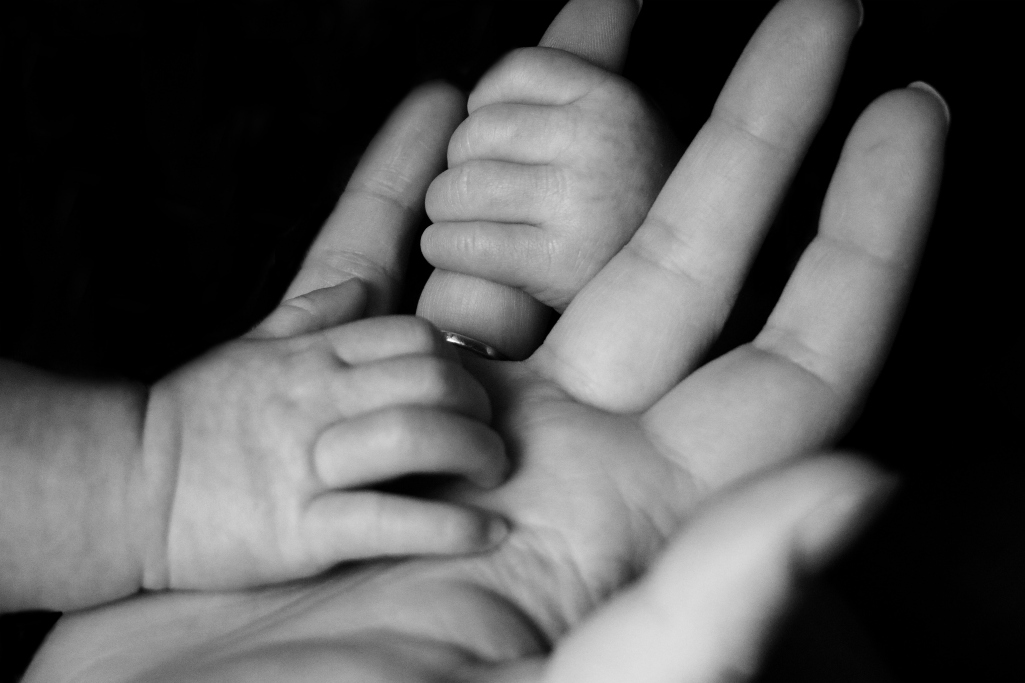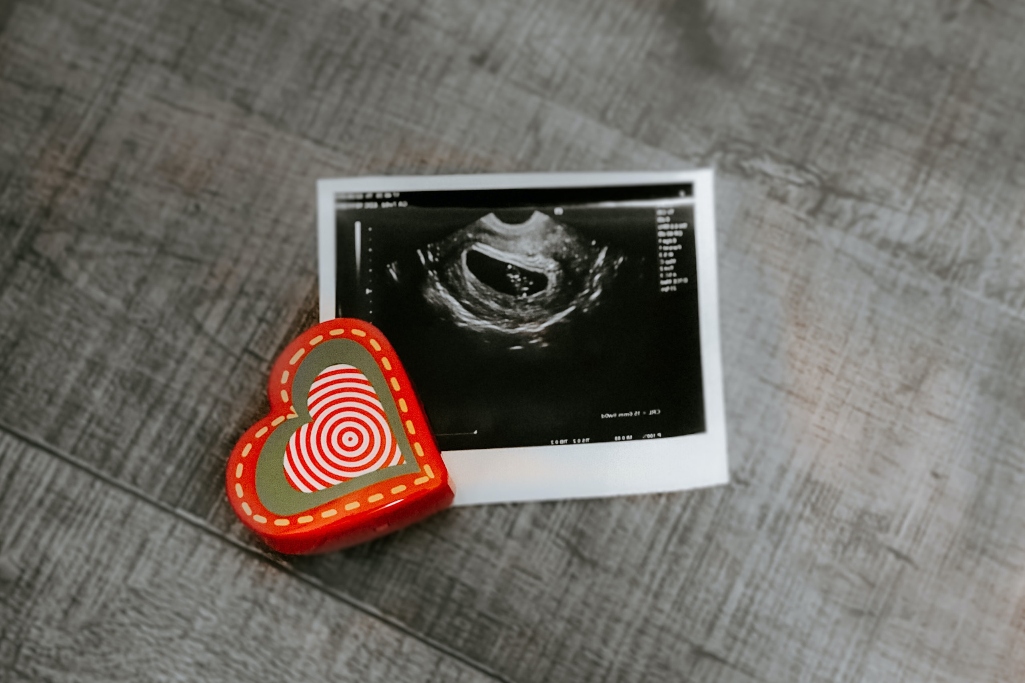
Chris and Jennifer Rankin*.
My husband, Chris, and I both grew up Southern Baptist and remain committed and engaged in a Southern Baptist church to this day. We are both staunchly pro-life and believe without a doubt that life begins from the exact moment of conception.
We also have two beautiful daughters who were conceived with the help of in vitro fertilization, or IVF.
With IVF being in the headlines lately, we’ve had a unique opportunity to share our convictions with both Christians and non-Christians and explain how we have utilized technology to grow our family through IVF in a manner consistent with our moral convictions.
The Southern Baptist Convention (SBC) last month passed a resolution surrounding IVF.
The major news media outlets have twisted this resolution into a full-scale opposition to IVF, and the headlines around it are often sensational and downright false. We were aware of the resolution before it passed and wholly endorse its language. We do not believe it condemns us for using IVF in a way that considered the ethical implications and honored the human lives involved.
We hope that the Christian community, and the world in general, will begin to understand and consider the moral risks associated with IVF and advocate for greater proliferation of IVF procedures that respect the dignity of the human lives being created, such as a procedure called natural cycle IVF.
We were married young (19 and 20) but did not begin trying to have children until about seven years after we were married. So while we had been married awhile, we were still quite young from a fertility perspective. After a year of trying with no pregnancies, we had testing done with a fertility specialist. The specialist identified a few small issues, but nothing that fully explained our lack of success in getting pregnant. In the spring of 2018, we were officially labeled with “unexplained infertility.”
After several consults and lots of prayer, we decided to wait before pursuing any fertility treatments. To our surprise and great joy, we became pregnant in the late summer of 2019. Sadly, we lost that much hoped-for and desired baby early in the pregnancy. While processing the loss, our desire to bring a baby home intensified. We prayed fervently about our options and began pursuing fertility treatments, starting as low-tech as possible.
After several months of trying methods such as intrauterine insemination (IUI), our doctors recommended we move to IVF. I grew up with neighbors who had six children through IVF and was always taught that if you created embryos through IVF, you should use all of those embryos. As we began researching the process, we learned it wasn’t necessarily simple to just do IVF in the traditional fashion and automatically use all the embryos. The number of embryos created is often quite high, and couples are sometimes pushed to conduct genetic testing on the embryos — a troubling process.
In traditional IVF, or stimulated IVF, the hormonal injections a woman receives allow many eggs (oftentimes more than 20 eggs at a time) to be retrieved in one month, and those eggs are then fertilized to create multiple embryos. In a typical cycle anywhere from 50%-80% of the eggs retrieved turn into embryos, yielding a higher number of embryos than we had previously anticipated.
Those embryos are then frozen until the couple is ready to use them. In many cases, fertility specialists also recommend pre-genetic testing (PGT) of the embryos to identify any chromosomal abnormalities. In almost every case of an abnormal finding, the doctors recommend discarding these embryos, which we believe is tantamount to murder.
Some make the argument that these genetically “abnormal” embryos are not compatible with life and it is no different than an early miscarriage. In reality, embryos with Down Syndrome and other conditions that are life-altering, but not life-ending, are marked for destruction. It’s also concerning to see research coming out questioning the accuracy of the testing.
As we researched, prayed and sought godly counsel, we decided we were personally and ethically comfortable with IVF as long as we could limit the number of embryos created to a number we felt I could reasonably carry to term and ensure no genetic testing was done on the embryos.
It’s challenging to find doctors who will work with the constraints we put on our use of IVF. In many cases, we found our concerns were written off as unfounded. Through our research and multiple consultations, we discovered a treatment called natural cycle IVF.
This treatment does not involve any hormonal stimulation and only utilizes the one egg a woman’s body naturally creates each month. Because only one egg is used, only one embryo is created and it is immediately transferred back to the mother’s body within a matter of days.
This treatment is the closest we found to mimicking the natural process of becoming pregnant and we were excited to have it offered as an option. Unfortunately, only a handful of clinics in the U.S. offer this service because it tends to have a lower rate of immediate success, thus skewing the clinic’s success rates, which are everything from a marketing perspective.
We found a clinic in the Washington, D.C., area where the treatment was offered and began pursuing treatment. For every cycle we did, this meant I was making multiple four-hour round-trip drives to the clinic for monitoring or procedures. Each month brought nervous waiting to find out if the tiny life would continue growing and we would eventually bring home a baby. None of this was easy, but we felt God’s leading and peace throughout the entire process.
After five cycles, and many months of waiting, we finally saw the most precious sight — a heartbeat flickering on the screen. This little life was our firstborn child, a beautiful girl with curly brown hair, the most adorable smile and the sweetest personality. She brought us joy in a way we didn’t know was possible and showed us even more how precious each life is to God. She strengthened our resolve to honor God in the way we conceived children and made us yearn for more offspring to raise in the nurture and admonition of the Lord.
When our first daughter was nine months old, we were excited to begin trying for a second child, but knew it could take time. We had already reached out to our original clinic, and to our chagrin, we learned they were no longer offering natural cycle IVF. We sought out alternative clinics offering the treatment, and the only “local” (quite the relative term in this case) option was New York City (NYC).
Through the support of family who lived near NYC and provided a place to stay and childcare for our oldest, we were able to begin working with this new clinic and became pregnant the first month of treatment. This quick pregnancy was an unexpected blessing, and we were thankful to not have to make the trips into NYC more than one month in a row.
We currently have a 2-year-old and a 9-month-old who are best little friends. Watching their relationship grow has been a privilege, and we pray we raise them well and teach them about God’s truths.
There are many reasonable and well-founded concerns with IVF technology that have been well documented by thought leaders in the Christian community. This doesn’t mean IVF is always wrong. But, IVF is also not right in every application of its use.
IVF is not easy. More often than not, IVF is morally risky or downright wrong. But we fully believe that IVF can be used in a way that glorifies God and grows families who want to honor and serve Him.
We have been so blessed to have access to doctors and clinics who have worked with us to grow our family and continue to listen to our concerns and provide treatment in an ethical manner. We pray more Christians struggling with infertility will fully research and realize the implications of IVF and advocate for the lives of their unborn children while going through fertility treatments.
(EDITOR’S NOTE — This story was originally published by the Baptist Convention of Maryland/Delaware.)
* Names have been changed to protect privacy.


